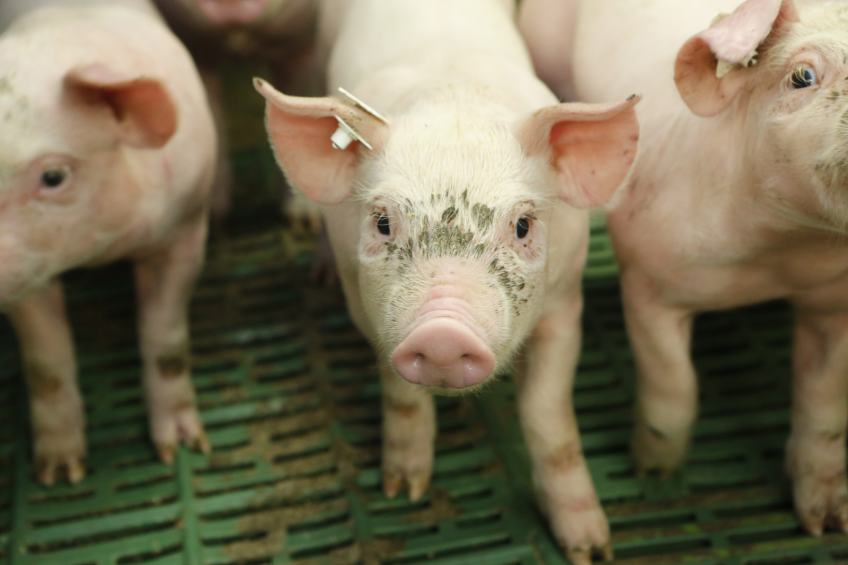Pig diets: Porcine plasma or egg yolk antibodies?

With spray-dried porcine plasma (SDPP), how is pig performance affected when compared to diets containing egg yolk antibodies? Spanish researchers did a trial.
The results were published in the Journal of Swine Health and Production, a publication by the American Association of Swine Veterinarians (AASV). The article was written by researchers from the Institute for Agri-Food Research and Technology (IRTA), in Catalonia, Spain and spray-dried porcine plasma manufacturer APC.
Objectives
In the article, the researchers wrote: “To study the effects on performance of weaned pigs reared in an uncleaned nursery and fed diets containing either egg yolk antibodies (EYA) or spray-dried porcine plasma (SDPP) at one of two dietary inclusion rates.
They continued, “Weaned pigs of 21 days of age and weighing 6.3 kg, were housed in an uncleaned nursery and were fed diets containing 3% or 6% spray-dried porcine plasma or 0.2% egg yolk antibodies for 14 days post weaning, then a common diet to day 28 post weaning. This trial had nine replicates, the pigs were housed per 4 in each pen.”
Results including linear improvement
The researchers wrote: “During the initial 14 days, in pigs fed diets with increasing levels of spray-dried porcine plasma, there was a linear improvement in day 14 body weight and average daily weight gain (ADG) and a tendency for improved average daily feed intake (ADFI) and gain-to-feed ratio (or feed conversion ratio, G:F). In addition, pigs fed spray-dried porcine plasma had greater ADG, ADFI, and G:F than pigs fed an egg yolk antibody diet.
During the trials, it was found that performance variables did not differ between pigs fed the egg yolk antibody diet and those fed the unsupplemented control diet. During the common starter-diet phase (days 15 to 28), G:F was lower for pigs previously fed spray-dried porcine plasma diets. Over the 28-day period, performance variables did not differ.
Performance and spray-dried porcine plasma
The researchers concluded, “Under the conditions of this study, while performance may not be better in pigs fed an egg yolk antibody diet than in pigs fed a control diet, performance may be better in pigs fed spray-dried porcine plasma diets than in controls during the initial 14-day period.”
SDPP and gut pathogens
They add that the mode of action of spray-dried porcine plasma may well be related to the way the animals can deal with pathogens.
Quoting other scientific sources, they wrote: “Several publications have demonstrated that when SDPP is included in the diet of animals challenged with a diversity of pathogens (Escherichia coli, Salmonella, rotavirus, Porcine Reproductive and Respiratory Syndrome, and Porcine Epidemic Diarrhoea virus (PEDv)), the animals had better health and more rapid recovery from these pathogens. Enhanced performance provided by SDPP in diets for weaned pigs may be related to beneficial effects on intestinal barrier function, inflammation, and diarrhoea.”
The scientific article, ‘Effect of spray-dried porcine plasma protein and egg antibodies in diets for weaned pigs under environmental challenge conditions’, was written by David Torrallardona, DVM, PhD, IRTA, Spain; and Javier Polo, MSc, PhD, APC Europe, Spain.











